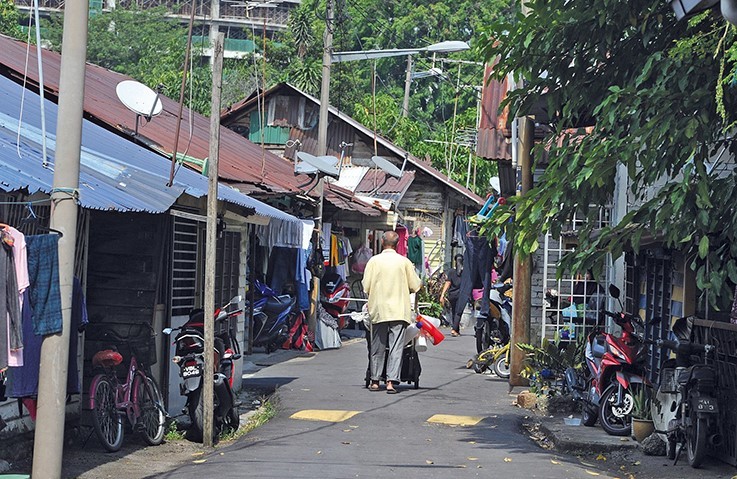
Insufficient savings, lack of social protection, income shock and sudden job loss due to the Covid-19 outbreak have exposed more Malaysians to poverty, especially those whose income have been hovering around the poverty line pre-pandemic.
The Department of Statistics last month revealed that Malaysia’s unemployment rate increased to 5.3% in May 2020 from 5% in April 2020 as the number of unemployed persons rose by 47,300 to 826,100 individuals — the highest rate in 27 years.
Khazanah Research Institute (KRI) senior research associate Hawati Abdul Hamid said many households in Malaysia are very vulnerable to fall into poverty this year.
Based on the revised methodology, she explained the poverty rate is estimated to be at 5.6% in 2019 with the poverty line income (PLI) average of RM2,208.
“Looking at the relative poverty rate (defined at PLI of RM2,937 ie half of median RM5,874), the poverty rate stands at 16.9%.
“The difference between absolute PLI and relative PLI is RM700, yet differences in the poverty rate are about 11%. It means, just by (an) income shock of RM700, an additional 800,000 households would have become ‘poor’,” she told The Malaysian Reserve in an email reply.
She said a line chart for 2019 income distribution showed that there are 5.6% of households with income below RM2,000 and for the RM2,000-RM3,000 income group, there are about 12.3% of households.
This means an income shock of RM1,000 will add 12.3% more poor households, she added.
This, Hawati said, highlights the need to have an enhanced social protection.
“As full-time employment is shrinking and informal employment is expanding, people should be aware of the importance of social security.”
Labour intensive industries, such as construction, agriculture, distributive trade and restaurants, tend to have higher than average labour income shares, but lower than average wage levels.
Hawati said measures to address wealth inequality require identifying its nature and root cause.
“Generally, levelling wealth inequality relies on redistribution — taking away income at the higher end of the income spectrum and spreading it out among the lower end.
“In addition, initiatives to enhance wealth accumulation capabilities of those at the bottom could also narrow the disparity.”
In principle, she said a minimum wage level that reflects the cost of meeting basic needs is needed and in light of the current pandemic situation, it should be balanced with the capability of firms to pay, together with measures to ensure businesses’ survivability.
UniKL Business School Assoc Prof Dr Aimi Zulhazmi Abdul Rashid said the government needs to act immediately to address wealth inequality as it will certainly cause further social imbalances, creating a more polarised society.
“The ministries must come together to provide a blueprint to forge solutions, minimise politicking and communicate clearly with all stakeholders especially the rakyat, the core,” he said when contacted.
He also said the revision of the new PLI to RM2,208 should be in tandem with the revision of the minimum wage of RM1,100.
“(Higher) unemployment rate recorded, being May 2020 reported to have the highest number of unemployed in terms of numbers (at) 830,000 and more businesses wind down.
“It is a worrying gap, however, it is also an opportunity to revive the country to move into a gig economy, indeed as a catalyst to expedite the country’s economic transformation.”
The economist believes the move to grow a digital economy should be expedited as it is the fastest means to bridge the income divide.
Malaysia, he said, should move away from labour intensive manufacturing to high technology, driven by the Industrial Revolution 4.0.
“We should stop hiring foreign labour to fill in low manufacturing bases.
“Small and medium enterprises must be assisted by all agencies to migrate to artificial intelligence application, the fact is they want to but they don’t know how.
“Grant, research incentives must be part of the government’s drive in a major way, not only as a subset currently.”
He said a research and development culture must also be inculcated from primary education up to tertiary and beyond.
Source: https://themalaysianreserve.com/2020/08/10/covid-19-pushes-more-malaysians-into-poverty/

